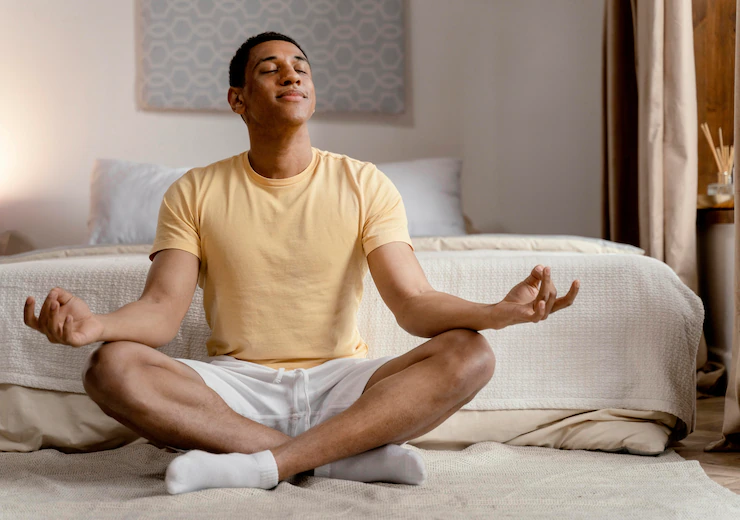Introduction:
In today’s fast-paced and demanding world, stress has become a prevalent issue that can negatively impact our mental health. The constant busyness and pressures of daily life can leave us feeling overwhelmed and disconnected. However, there is a powerful tool that can help alleviate stress and improve our overall well-being: mindfulness. In this article, we will explore the benefits of mindfulness and provide practical tips for incorporating mindfulness practices into your life for stress reduction and improved mental health.
- Understanding mindfulness: Mindfulness is the practice of intentionally bringing your attention to the present moment, without judgment. It involves observing your thoughts, feelings, bodily sensations, and the surrounding environment with a sense of curiosity and acceptance. By cultivating a state of non-reactive awareness, mindfulness allows you to become more attuned to the present and develop a deeper understanding of your inner experiences.
- Benefits of mindfulness for stress reduction: Mindfulness has been scientifically proven to have numerous benefits for stress reduction and improved mental health. It helps shift our focus away from worries about the future or regrets about the past, allowing us to find calm and peace in the present moment. Regular mindfulness practice can reduce the physiological effects of stress, such as lowering blood pressure and cortisol levels. It also enhances emotional regulation, increases resilience, and improves overall well-being.
- Practicing mindfulness in daily life: Incorporating mindfulness into your daily life doesn’t have to be complicated. Here are some practical tips to get started:a. Mindful breathing: Take a few minutes each day to focus on your breath. Pay attention to the sensation of the breath entering and leaving your body. Whenever your mind wanders, gently bring your focus back to the breath.b. Body scan: Set aside some time to do a body scan meditation. Start from the top of your head and slowly move down, paying attention to each part of your body. Notice any sensations, tension, or areas of relaxation.c. Mindful eating: Engage in mindful eating by savoring each bite of your meal. Pay attention to the flavors, textures, and sensations in your mouth. Slow down and fully experience the act of nourishing your body.d. Mindful walking: Take a mindful walk outdoors, focusing on the sensation of your feet touching the ground, the sounds around you, and the movement of your body. Allow yourself to be fully present in the experience.e. Mindful pauses: Throughout the day, take short mindful pauses. Pause for a few moments, close your eyes if possible, and bring your attention to your breath. Notice any sensations or thoughts that arise without judgment.
- Cultivating a daily mindfulness practice: To reap the full benefits of mindfulness, it’s helpful to establish a regular practice. Set aside a specific time each day for formal mindfulness practice, starting with just a few minutes and gradually increasing the duration. Consistency is more important than duration, so even a few minutes of daily practice can make a difference.
- Integrating mindfulness into daily activities: Beyond formal practice, find opportunities to infuse mindfulness into your daily activities. Whether it’s brushing your teeth, washing dishes, or taking a shower, bring your full attention to the present moment. Engage your senses and notice the details of the experience.
- Mindfulness apps and resources: If you find it helpful, there are numerous mindfulness apps and resources available that can guide you through meditation practices and provide support for your mindfulness journey. Some popular apps include Headspace, Calm, and Insight Timer.
- Non-judgment and self-compassion: Remember that mindfulness is not about achieving a specific state or judging yourself for wandering thoughts. It’s about cultivating a gentle and non-judgmental awareness. If your mind wanders during meditation or you find it challenging to stay present, simply acknowledge it without self-criticism and gently guide your attention back to the present moment.
Conclusion:
Practicing mindfulness can be a powerful tool for reducing stress and improving mental health. By incorporating mindfulness into your daily life, you can cultivate a greater sense of calm, presence, and well-being. Remember to approach mindfulness with patience and self-compassion, allowing yourself to fully embrace the present moment and the transformative effects of this practice. Start small, stay consistent, and watch as mindfulness enriches your life.










